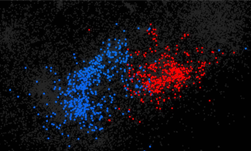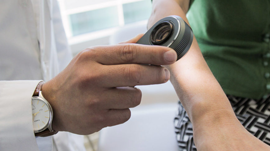A new deep learning app called Face2Gene lets doctors snap an image of a patient and receive a suggested diagnosis from thousands of genetic disorders.
“One in 10 people suffer from a rare disease,” said Dekel Gelbman, FDNA CEO, the company who developed the app. “Many of these are life threatening, and often extremely difficult to diagnose. These patients and their families suffer a great burden while trying to find answers to their symptoms, averaging seven years and seven doctors. FDNA helps healthcare providers find answers faster in hopes of saving lives and improving patient quality of life. We accomplish this through using the best technology in the world — based on a combination of facial analysis, deep learning, and artificial intelligence and partnering with clinicians, researchers, labs, and ultimately with drug development companies that share our goal.”
Using CUDA, TITAN X GPUs and cuDNN with the Torch deep learning framework, the company trained their models on patients’ photos and clinically annotated features from thousands of patients with known genetic syndromes.
The trained model can now be fed photos and clinical features from undiagnosed patients in real-time to produce a list of syndromes, clinical features, and genes that are scored based on relevance. The clinician can then confirm the recommendations or add other annotations, resulting in further refinement of the syndrome list until a clinical or differential diagnosis is made by the clinician. With each diagnosis, the system improves. The system already covers thousands of genetic disorders.

FDNA plans to move beyond recognizing syndromes and into identifying certain types of autism.
Read more >
Identify Rare Diseases with a Selfie

Jan 09, 2017
Discuss (0)
AI-Generated Summary
- FDNA has developed a deep learning app called Face2Gene that helps doctors diagnose genetic disorders by analyzing a patient's image and suggesting possible conditions from a database of thousands.
- The app was trained using NVIDIA's CUDA, TITAN X GPUs, and cuDNN with the Torch deep learning framework on photos and clinically annotated features from patients with known genetic syndromes.
- The Face2Gene system improves with each diagnosis and is expected to expand its capabilities beyond recognizing syndromes to identifying certain types of autism.
AI-generated content may summarize information incompletely. Verify important information. Learn more









